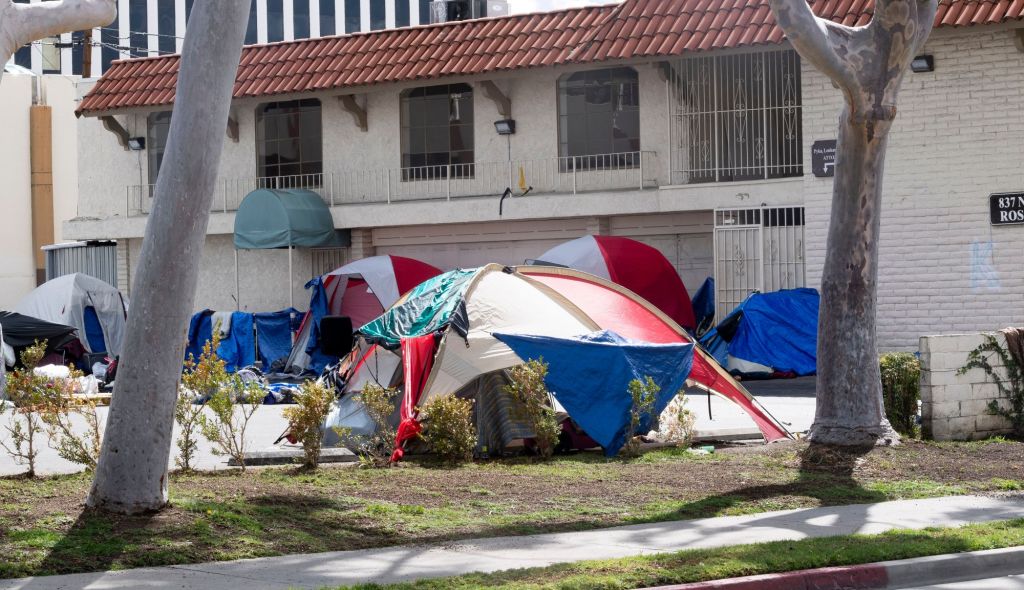Anaheim has struggled with knowing the real-time availability of beds for people living on the street, Mayor Ashleigh Aitken said.
That’s why she made the trek to Sacramento on a cold day in early March as part of the Big City Mayors coalition — made up of mayors from California’s 13 largest cities — to advocate for a pair of bills meant to aid cities like hers help those experiencing homelessness.
“We’re looking at what I like to call the hardest but last mile, which is people that have severe mental health and substance abuse disorders,” Aitken, who was joined in Sacramento by the mayors of San Jose, San Francisco and San Diego, said. “Those are the cases that we now see the majority of our population suffering from.”
The number of unsheltered adults suffering from substance use disorders and mental illness in Orange County, according to the latest point-in-time count, has increased from 2019 to 2022.
One of the bills before the Senate this year, that Aitken is advocating for, would create California’s first real-time online database that would collect and display information about available beds for those who are struggling with mental illness and substance abuse disorders.
The data would not be publicly available information; it could only be accessed by entities deemed appropriate, like health care providers, the bill says.
The other bill on the mayors’ radars would expand the scope of “grave disability” — when an individual is unable to provide for themselves food, clothing and shelter due to a mental illness — to include conditions resulting in “substantial risk or serious harm to the physical or mental health of a person due to a mental health disorder or a substance use disorder.”
The new definition of “grave disability” will apply to the standard for conservatorship, in which a third party makes decisions for and takes care of an individual.
Both bills are sponsored by Sen. Susan Talamantes Eggman, a Stockton…
Read the full article here






